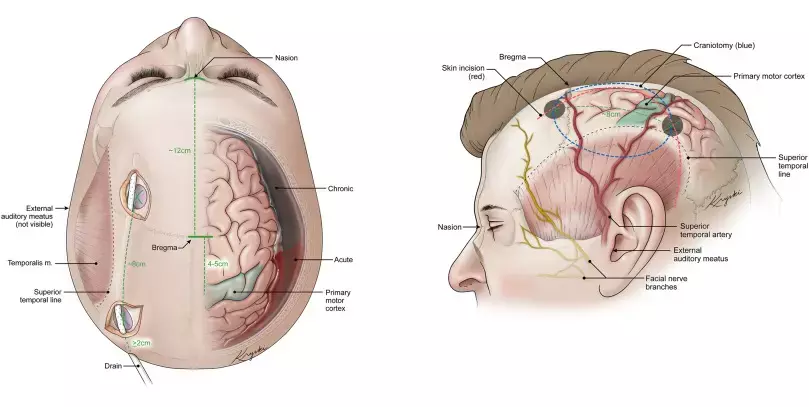- Home
- Medical news & Guidelines
- Anesthesiology
- Cardiology and CTVS
- Critical Care
- Dentistry
- Dermatology
- Diabetes and Endocrinology
- ENT
- Gastroenterology
- Medicine
- Nephrology
- Neurology
- Obstretics-Gynaecology
- Oncology
- Ophthalmology
- Orthopaedics
- Pediatrics-Neonatology
- Psychiatry
- Pulmonology
- Radiology
- Surgery
- Urology
- Laboratory Medicine
- Diet
- Nursing
- Paramedical
- Physiotherapy
- Health news
- Fact Check
- Bone Health Fact Check
- Brain Health Fact Check
- Cancer Related Fact Check
- Child Care Fact Check
- Dental and oral health fact check
- Diabetes and metabolic health fact check
- Diet and Nutrition Fact Check
- Eye and ENT Care Fact Check
- Fitness fact check
- Gut health fact check
- Heart health fact check
- Kidney health fact check
- Medical education fact check
- Men's health fact check
- Respiratory fact check
- Skin and hair care fact check
- Vaccine and Immunization fact check
- Women's health fact check
- AYUSH
- State News
- Andaman and Nicobar Islands
- Andhra Pradesh
- Arunachal Pradesh
- Assam
- Bihar
- Chandigarh
- Chattisgarh
- Dadra and Nagar Haveli
- Daman and Diu
- Delhi
- Goa
- Gujarat
- Haryana
- Himachal Pradesh
- Jammu & Kashmir
- Jharkhand
- Karnataka
- Kerala
- Ladakh
- Lakshadweep
- Madhya Pradesh
- Maharashtra
- Manipur
- Meghalaya
- Mizoram
- Nagaland
- Odisha
- Puducherry
- Punjab
- Rajasthan
- Sikkim
- Tamil Nadu
- Telangana
- Tripura
- Uttar Pradesh
- Uttrakhand
- West Bengal
- Medical Education
- Industry
Aspirin Discontinuation fails to lower risk of Recurrence of chronic subdural hematoma after surgery: JAMA

Researchers have found in SECA randomized clinical trial that stoppage of ASA (Aspirin) did not lower the recurrence rate of surgically treated chronic subdural hematoma (cSDH) within six months. Additionally, the recurrence risk associated with continued ASA use was significantly lower than previously reported in earlier studies.
Discontinuation of low-dose acetylsalicylic acid (ASA) during the perioperative phase of treatment for chronic subdural hematoma (cSDH) may reduce recurrence rates but may also increase the risk of cardiovascular or thromboembolic events. However, the efficacy and safety of discontinuing ASA in this patient population remain unclear. A study was done to assess the risk of recurrence of cSDH and cardiovascular events in patients undergoing surgical treatment of cSDH with continuous vs discontinuous ASA treatment.
The SECA (Surgical Evacuation of Chronic Subdural Hematoma and Aspirin) trial was an investigator-initiated, multicenter, placebo-controlled randomized clinical trial conducted from February 2018 to June 2023 at 6 neurosurgical centers in Switzerland. Adults undergoing burr hole drainage for cSDH and receiving ASA treatment prior to cSDH onset were included. Of 1363 screened patients, 155 were included. Both assessors and participants were blinded to the treatment arms. Participants were randomized 1:1 to receive either continuous ASA or placebo for 12 days during the perioperative phase.
The main outcome was the recurrence rate of cSDH necessitating reoperation within 6 months. An intention-to-treat analysis was performed, calculating risk differences. Secondary outcomes were cardiovascular or thromboembolic events, other bleeding events, and mortality. Results Of 155 participants, 78 were assigned to continuous ASA and 77 to placebo treatment. The mean (SD) participant age was 77.9 (8.2) years and 77.6 (9.7) years for the ASA and placebo groups, respectively, and 25 participants (16.1%) were female. A primary outcome event occurred in 13.9% of participants for the ASA group and 9.5% for the placebo group (weighted risk difference, 4.4%; 95% CI, −7.2% to 15.9%; P = .56). The incidence of any cardiovascular or thromboembolic event was 0.27 per person half-year in the ASA group and 0.28 in the placebo group. The incidence of a cardiovascular event indicating ASA treatment was 0.02 per person half-year in the ASA group and 0.06 in the placebo group.
Other bleeding events showed an incidence of 0.10 per person half-year in the ASA group and 0.08 in the placebo group. All-cause mortality occurred at an incidence of 0.06 per person half-year in the ASA group and 0.03 in the placebo group. The SECA randomized clinical trial suggests that discontinuing ASA treatment did not reduce the recurrence rate of surgically treated cSDH within 6 months. Recurrence risk estimates for continuous ASA treatment in this trial were distinctly lower than previously reported.
Reference:
Kamenova M, Pacan L, Mueller C, et al. Aspirin Continuation or Discontinuation in Surgically Treated Chronic Subdural Hematoma: A Randomized Clinical Trial. JAMA Neurol. Published online April 27, 2025. doi:10.1001/jamaneurol.2025.0850
Dr. Shravani Dali has completed her BDS from Pravara institute of medical sciences, loni. Following which she extensively worked in the healthcare sector for 2+ years. She has been actively involved in writing blogs in field of health and wellness. Currently she is pursuing her Masters of public health-health administration from Tata institute of social sciences. She can be contacted at editorial@medicaldialogues.in.
Dr Kamal Kant Kohli-MBBS, DTCD- a chest specialist with more than 30 years of practice and a flair for writing clinical articles, Dr Kamal Kant Kohli joined Medical Dialogues as a Chief Editor of Medical News. Besides writing articles, as an editor, he proofreads and verifies all the medical content published on Medical Dialogues including those coming from journals, studies,medical conferences,guidelines etc. Email: drkohli@medicaldialogues.in. Contact no. 011-43720751


